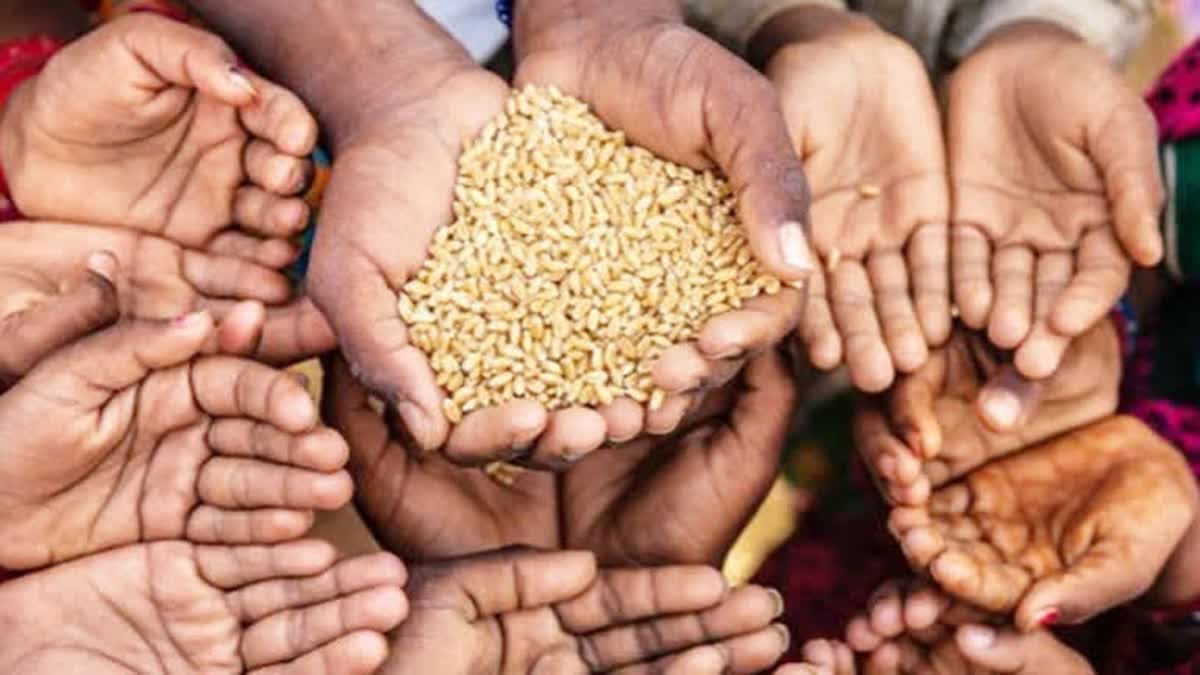Hyderabad: The climatic changes that are turning people’s lives into veritable hell are also going to stoke the fires of hunger among the people. Since years, the warning signals in this regard have been causing concern. Over six years ago, a Parliamentary Standing Committee had alerted the nation saying “the frailty of India’s agriculture sector to withstand extreme climatic conditions and the inability of our farmers to adapt methods that would help overcome the loss caused by those conditions portend the lurking threat to the nation’s food security.”
In that same period, the Indian Council of Agriculture Research had said “If the present methods are continued, severe losses will have to be faced due to the rising temperatures and erratic rainfall. India will become the largest victim of climatic changes.” The council’s director general and the secretary of Indian Agriculture Research Education department Dr Himanshu Pathak has unveiled a dreadful scenario in his latest revelations.
Dr Pathak has expressed concern that there would be 40 to 47 percent decline in the output of rainfed paddy and wheat by 2080 due to the unexpected changes in the climate. According to the research outcome of official institutions, the yields of corn and soybean will also decline in the coming days. Not only the yield, but also the nutrient value of the crops will suffer as a result of the climatic changes.
As a result, agriculture will be seriously imperilled in 109 districts across the country. The severity of the threat will be greater in 201 districts. At the local level around 60 percent of the agricultural lands are still rainfed. If agriculture collapses in respective regions, the rural economies will also be ruined. This will endanger food security all over the country.
In order to prevent this, the helpless farmers of the country should be extended full support so that they don’t get discouraged from continuing agriculture due to natural calamities. Crop varieties that can withstand extremes of temperatures should be evolved and grown extensively without jeopardising the soil fertility.
Also read: India bans wheat exports with immediate effect
Facilities for the storage of harvest should be expanded. Above all else, the lethal demon called climatic pollution should be kept under control. According to a recent study, the manufacturing, service, agriculture and construction sectors suffered a loss of 15,900 crore USD (5.4 percent of the GDP) in the year 2021 due to the rise in climatic temperature.
It is estimated that crops were damaged in an extent of 8.89 crore acres due to cyclones, flash floods and landslides between 2015 and 2022. Rainfall pattern has changed in the country during past three decades. Floods and cyclones are wreaking greater havoc. Droughts are also bearing their fangs due to erratic monsoons.
The UN inter-governmental committee had stated earlier that with a coastal area stretching 7,500 kilometers and high human density, India was prone to frequent natural calamities. The petro fuels that are warming mother earth, the chemical wastes that are spreading poisons underground, unplanned expansion of towns and cities and the remorseless mowing down of forests are further compounding the problem.
In January last the apex court itself had reminded that the legislatures, the executive and the policy makers of the State and Central governments should take into consideration the loss being caused to the environment by works taken up in the name of speedy development. The court had also advised that there should be a balance between sustained development and protection of Nature.
Apart from following that sane advise the rulers of the day should also fulfil the promise made to the international community that they would achieve Net Zero carbon emissions by 2070. Inorder to achieve that, they should implement environment-friendly policies in the fields of energy, transport, town planning, industries and forests with long-term strategies.
On the other-hand the developed countries which are the greatest exploiters of the World resources are also causing unbridled carbon emissions. The pledges they are taking at global conventions are proving to be writings on water. The humankind can be rescued from the vicious circle of climatic changes, only if the rich nations show their commitment to truly contain global warming.
(The editorial was first published in Eenadu on Oct 6, 2023)




